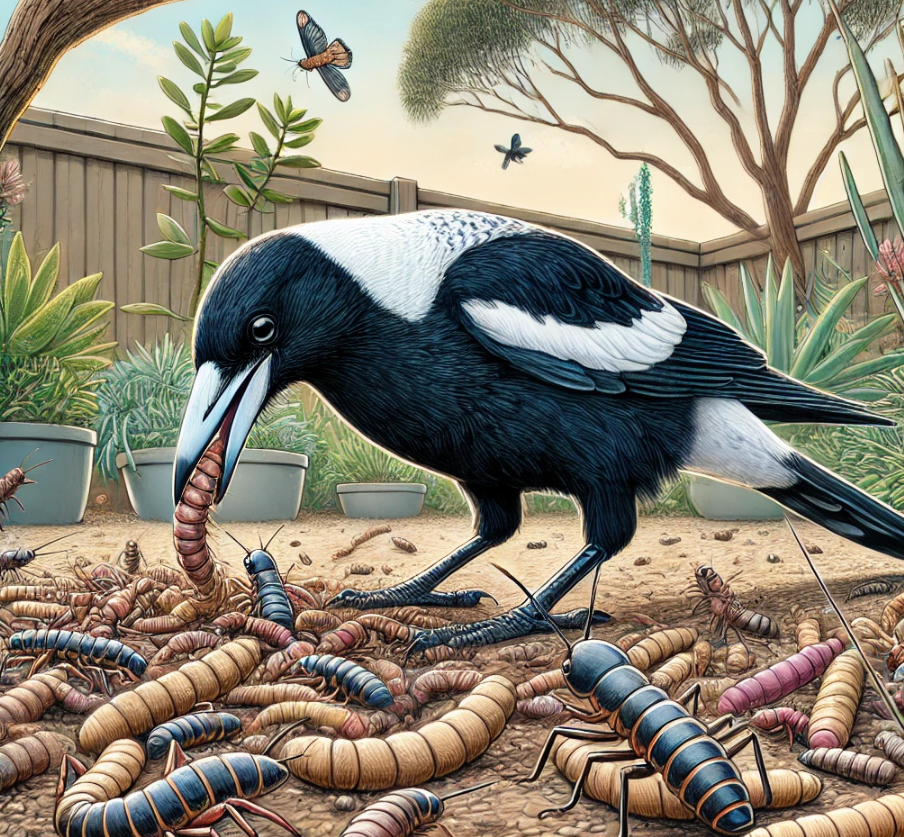Feeding wild birds in your backyard is a great way to enjoy their beauty while helping them thrive in an urban environment. However, it’s essential to feed them the right foods that mimic their natural diet, as improper feeding can do more harm than good. In this blog, we’ll explore the best foods to offer Australian wild birds and those you should avoid.
What to Feed Wild Birds
Wild birds in Australia have diverse diets, depending on the species. Here are some bird-friendly options you can offer in your backyard:
-
Native Seeds
Seeds are a natural part of many bird species' diets, such as parrots and finches. Offering a mix of native seeds, like wattles, banksias, and grasses, will attract seed-eating birds and provide them with familiar nourishment. -
Fruits
Fresh fruits like apples, berries, and bananas are excellent treats for birds like lorikeets, rosellas, and bowerbirds. Ensure the fruits are washed and cut into small pieces to make them easy for birds to consume. -
Nectar
Nectar-feeding birds, such as rainbow lorikeets and honeyeaters, thrive on a diet rich in nectar. You can purchase a product like Wombaroo nectar shakes or Avione Wild Bird Nectar. However, it’s essential to keep the feeders clean to avoid any bacteria or mould growth as this can be harmful. -
Insects
Insect-eating birds like magpies, kookaburras, and wrens benefit from foods like mealworms and crickets. Offering live or dried insects will replicate their natural diet, providing them with the protein they need. -
Native Plants
One of the best ways to feed wild birds is by planting native plants in your garden. Grevilleas, bottlebrushes, and banksias are all great options that naturally attract birds and provide nectar, seeds, and insects.
What NOT to Feed Wild Birds
Unfortunately, many well-meaning bird lovers unknowingly feed wild birds harmful foods. Here’s what to avoid:
-
Bread
Bread is one of the worst foods to give to wild birds. While it might seem harmless, bread offers little nutritional value and can lead to malnutrition, digestive problems, and even deformities in young birds. -
Seed Mixes with Non-Native Seeds
Many commercially available birdseed mixes contain non-native seeds or filler seeds that aren’t suitable for Australian birds. Avoid mixes that include sunflower seeds, wheat, or corn, as they can attract pests or provide the wrong type of nutrition. -
Human Food Scraps
Leftover human food, especially processed or cooked items, can be very dangerous for birds. Foods high in salt, fat, and sugar can lead to health issues like obesity and heart problems in birds. -
Milk and Dairy Products
Birds cannot digest lactose, so feeding them dairy products like milk or cheese can cause digestive problems and illness. -
Sugary Nectar Solutions
While nectar can be a good food source for nectar-feeding birds, it’s important not to make it too sugary. Highly concentrated sugar solutions can lead to health issues like fungal infections in birds.
Responsible Feeding Practices
If you decide to feed wild birds in your backyard, it's essential to do so responsibly:
-
Keep Feeders Clean: Dirty feeders can harbor bacteria and mold, which can make birds sick. Clean feeders regularly to prevent contamination.
-
Offer Water: In addition to food, ensure birds have access to clean water for drinking and bathing. A shallow birdbath with fresh water will attract a wide range of bird species.
-
Limit Feeding to Natural Foods: Whenever possible, focus on planting native trees, shrubs, and flowers to create a sustainable food source for wild birds. This approach will encourage birds to feed naturally, while also enhancing biodiversity in your backyard.
Feeding wild birds in your backyard can be a rewarding experience, but it’s crucial to provide the right foods. Stick to native seeds, fruits, nectar, and insects, and avoid harmful foods like bread, human scraps, and dairy products. By making thoughtful choices, you can enjoy the presence of wild birds while contributing to their well-being and helping them thrive in Australia’s unique environment.
For further information check out this blog on Seasonal Bird Care: How to Support Native Birds During the Hot Australian Summers

